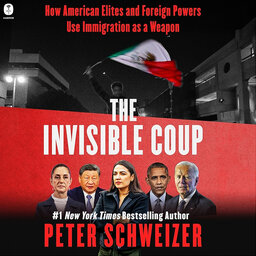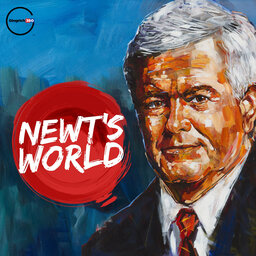Episode 747: City of Dreams
"City of Dreams" is a new film that tells the story of Jesús, a young Mexican boy whose dreams of becoming a soccer star are shattered when he's trafficked across the border and sold to a sweatshop in Los Angeles. The film, written and directed by Mohit Ramchandani and produced by Roadside Attractions, is a thrilling narrative that sheds light on the issue of child trafficking and forced labor in the United States. The film's executive producer, Vivek Ramaswamy and producer, Sean Wolfington, discuss the importance of the film and the need for action against child trafficking. The film is currently in theaters nationwide.
In 1 playlist(s)
Newt's World
Join former House Speaker, professor, historian, and futurist Newt Gingrich as he shares his lifetim…Social links
Follow podcast
Recent clips

Episode 948: ‘Moneyball’ for Politics
30:34

Episode 947: Will AI Take My Job
28:22

Episode 946: Peter Schweizer on “The Invisible Coup”
34:50
 Newt's World
Newt's World